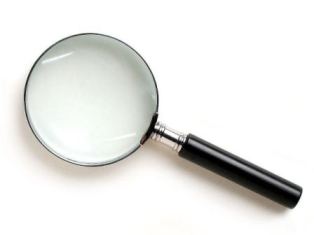Healthy eating facts like “don’t eat carbs before bed” and “eat every 3 hours to stoke your metabolism” are nothing more than myths that make dieting more complex than it need to be!

If enough people repeat something is usually becomes accepted as truth despite the fact that many of them are plain wrong.
The problem with this is that these diet myths unnecessarily create more “rules” you must follow if you want results.
Dieting is regimented enough without us adding more rules that don’t actually contribute to our diets and usually make them LESS effective!
In this two-part article I’m going to shine a light on the myths we accept as healthy eating facts and prove there is no truth in them.
You can then stop worrying about getting every “healthy eating fact” right and focus on the things that truly matter.
In part one we uncover these healthy eating facts which are mere myths:
- Eating carbs at night time will make me fat
- I need to eat protein every 3 hours or I’ll lose muscle
- I need to eat every 3 hours to keep my metabolism high
- Eating a large meal before bed will make me fat
- Eating fatty foods will make me fat
Let’s take a look at them one-by-one and establish the real healthy eating facts from the fiction!
Myth #1 – Eating Carbs at Night Time Will Make Me Fat
This is possibly the single biggest “healthy eating fact” believed to be true when in fact there is no scientific foundation to support it!
In fact, scientists found the opposite, consuming carbs at night can lead to weight loss provided a calorie deficit is in place.
It doesn’t matter how cleverly you combine foods or cut out a food group etc, you cannot lose weight if you take in more calories than you burn. FACT
In the study called “Greater Weight Loss and Hormonal Changes After 6 Months Diet With Carbohydrates Eaten Mostly at Dinner” scientists discovered some interesting things which shed light on this myth.
The study saw 78 Israeli police officers follow two types of diets:
- A low calorie diet with carbohydrates consumed throughout the day
- A low calorie diet with carbohydrates consumed mostly at dinner
The group eating all of their carbs at dinner showed much better results in a number of key area’s:
- Greater weight loss
- Reduced abdominal measurements
- Body fat reductions
- Lower hunger
- Improvements in a number of key health markers
- Positive changes to cholesterol levels
I would also add at this point that moving all of your carbs to dinner time is probably not optimal as the study itself concedes that further research is required.
However, this clearly demonstrates the fact that provided your calories are controlled; eating carbs at night does not make you fat!
And it goes without saying that if you’ve been hitting the weights you should be eating your carbs before and after your session to provide energy and replenish glycogen so you can recover.
So, will it be pasta or rice with tonight’s dinner?
Myth#2 – You Need To Eat Protein Every 3 Hours or You’ll Lose Muscle
Bodybuilders especially are obsessed with the idea that you need to eat protein every three hours to maintain an anabolic (i.e. building muscle) state.
Supplement manufacturers latched onto this and touted their products as perfect companions to the busy dieter who needs to consume protein every three hours.
And thus a healthy eating fact was born.
The truth is, different protein sources digest at different speeds so a catch-all “3 hours” recommendation isn’t accurate.
Studies on this subject have shown that the source and amount of protein are the influencing factors in regards to how long they take to digest:
- Whey Protein – Known for digesting quickly, whey takes 3-4 hours to digest
- Casein Protein – Found in dairy products and known to be slower to digest, casein takes 7-8 hours to digest
- Whole Food Protein– The digestion speed of real food is dependant on the source of protein and which foods accompany the protein
The take away lesson from this is not to worry about eating protein every 3 hours on the dot. Working people will know it’s not always easy to eat during the day so this can make your life a lot easier!
Try to eat every 5 hours instead, you probably don’t want to leave it too much longer than that but don’t freak out if you do. Muscle doesn’t get lost in the space of 60 minutes so just try to eat as soon as you can instead!
Myth#3 – You Need To Eat Every 3 Hours To Keep Your Metabolism High
The issue of meal frequency is one of the most debated aspects of dietary recommendations, more so since new studies called into question the generally accepted idea of eating small and often.
The logic behind this “healthy eating fact” is based on two schools of thought:
- Eating small and often elevates your metabolism which means you burn more calories while at rest
- When you eat food, your body has to break it down before it can be digested; this uses energy and is known as the Thermic Effect of Food (TEF). Therefore eating more frequently means that you’ll burn calories throughout the day by eating more often
These were accepted for a number of years but more recently this myth has come under scrutiny as a new breed of diets show equal or better results from eating less frequently. In fact, I now eat only 3-4 times per day and my results have been better than ever and I’m less hungry while dieting.
Studies looking into this specific myth concluded that when total calories are the same, changing the pattern of how often you eat them will not use more energy (calories) to digest the food nor elevate metabolic rate for any meaningful amount of time.
“We conclude that increasing MF (meal frequency) does not promote greater body weight loss under the conditions described in the present study.”
If you wish to read the studies in their entirety they can be found here:
Meal frequency and energy balance
Myth#4 – Eating a Large Meal Before Bed Will Make Me Fat
This is another of the healthy eating facts widely accepted as truth and it’s easy to see why Joe Public would believe this one.
The general perception is that eating before bed will make you fat because you are inactive for the next 7-10 hours while you sleep and that unneeded energy is stored as fat.
It’s true that when you eat above maintenance calories and you provide ample carbohydrates then extra calories will be stored as bodyfat. This is because your glycogen stores (energy deposits) are already full therefore the surplus is converted to bodyfat for future energy needs.
But simply eating a large meal late at night doesn’t mean the calories will be stored at night. The key is total energy balance not timing of the meal.
Remember that if you are eating less calories than you burn you will lose weight no matter how late you eat a meal.
The problem only arises when someone eats more than they should (knowingly or by not tracking their food intake), in this instance you would store the meal as fat regardless of the time of day it was consumed.
So provided you control your food intake it doesn’t matter how late you eat. During my last fat loss diet I got leaner than ever despite only eating three meals a day and the last meal being the biggest and the latest (usually around 10pm).
The results of my diet outlined in Fat Burning Workout Plan tell the story and prove that eating big meals late at night doesn’t add fat when calories are controlled!
Check out the size of my meals during that diet and the results I got because I controlled calories:


That should clear up any concerns and put another of the healthy eating facts to rest once and for all.
Myth#5– Eating Fatty Foods Makes You Fat
Before you tell me I’m wrong about the king of healthy eating facts, allow me to explain why I disagree with the above statement.
Eating too much of anything will make you fat, but as most people don’t track their diets they draw conclusions based on limited information rather than trying to understand the whole issue.
Let’s look at why people think fat makes you fat:
Fat has 9 calories per gram
Protein and Carbohydrates have 4 calories per gram

People therefore assume a low fat diet is superior for weight loss because fat has more calories in it. This coupled with the fact that the diet industry keeps telling us to eat low fat foods means it’s become accepted as one of the healthy eating facts.
In reality, we need fat for a number of bodily processes and as we can’t create the nutrients ourselves they have to come from our diet. Excluding fatty foods completely is not healthy by any stretch of the imagination.
Bear in mind also, the fact that most low fat foods are LOADED with sugars (check the “Carbohydrates of which Sugars” line on food labels). Sugar is responsible for far more degenerative diseases than fat!
It’s not a case of fats good, carbs bad as not all fats are created equal. As with everything there good and bad fats so the key is to know which fats to avoid and which to consume.
Good Fats
Naturally occurring fats usually contain monounsaturated fats which have been shown to be beneficial for weight loss and overall health.
Bad Fats
Processed foods on the other hand contain man made fats such as trans fats which have been linked to an array of diseases and should be avoided as much as possible.
Final thoughts…don’t take all fat out of your diet; just try to eat fat from naturally occurring sources like nuts, avocados, dairy, meat etc and not too much from pizza, burgers, crisps, cakes etc!
Return from Healthy Eating Facts to Healthy Eating Guidelines
Return to Free Workout Plans For Busy People